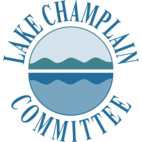Halt the Oil Trains

Rail transport of explosive Bakken crude oil along the lake puts our waterways and communities at risk.
LCC and partner organizations including the National Wildlife Federation and the Adirondack Council recently released a letter urging Congress to ban oil transportation along Lake Champlain. Rail transport of explosive Bakken crude oil through the North Country has increased dramatically due to tremendous growth in outputs from Canada and the Bakken oil fields of North Dakota. Oil from the Bakken fields is much more flammable than oil from other sources and has been implicated in numerous rail car explosions. Rail incidents in Quebec, Alberta, Alabama, Illinois, North Dakota, New Brunswick, Ontario, Virginia, West Virginia and Wisconsin have led to fires and explosions. The July 2013 derailment at Lac Megantic Quebec killed 47 people, incinerated the downtown and released approximately 1.5 million gallons of oil into the community and nearby town and river. The crash site's soil and nearby water resources remain contaminated today. A 2016 study found that nearly half of the fish collected were deformed and that populations were down by 66% since the crash.
Rail tracks sit next to Lake Champlain between the Saranac River and the former Air Force Base in Plattsburgh, from the mouth of the Ausable River to south of Willsboro Bay and from Port Henry south to Whitehall. "While transport of oil has risen significantly, federal regulations have not kept pace," noted LCC Executive Director Lori Fisher. "Much of the oil is moving along the lake in thinly walled train cars prone to explosion and along dated infrastructure." A recent update to the federal train safety regulations will not protect our communities and continues to allow the use of DOT-111 and CPC-1232 tanker cars for another half decade. A 2014 Cuomo Administration report "Transporting Crude Oil in New York State: A Review of Incident Prevention and Response Capacity," highlighted this continuing oversight gap and the need for swift action.
The increased rail traffic puts water resources and communities at risk. Emergency preparedness for an oil spill in Lake Champlain is weak. The current response plan is outdated and most oil spilled in water is never recovered in clean up. Impacts on aquatic organisms can linger for decades. The letter noted that "unless swift action is taken, it is a matter of when -- not if -- the Lake Champlain or Hudson River regions will be scarred by an oil spill. In the meantime, the safety, economy, fish, wildlife, recreation, and drinking water. . . remain at risk." In addition to the ban on the transport of oil along the lake, LCC and partners requested Congressional hearings be held to closely examine the current reality of crude oil transport via railways through our communities and along Lake Champlain and the Hudson River.
